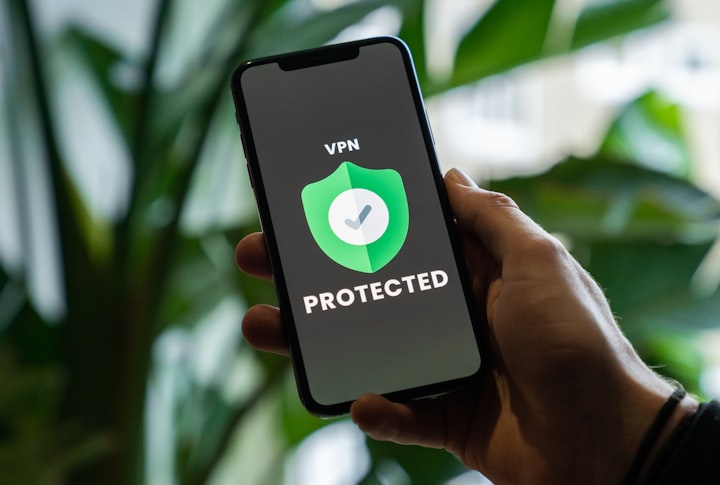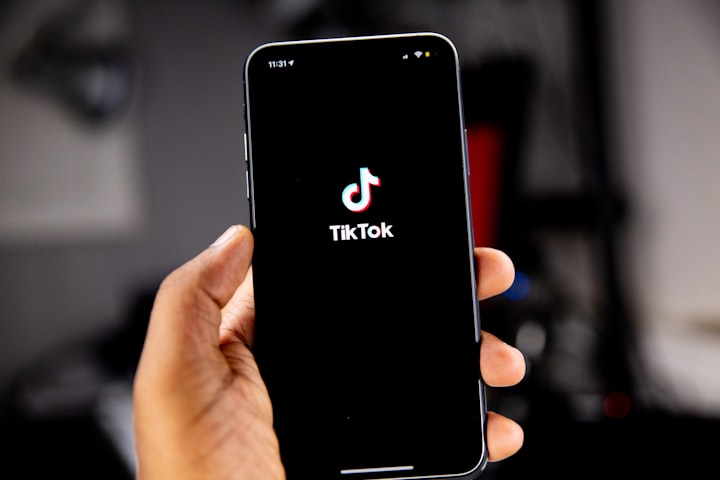Navigating User Data Protection in the Era of Social Media Bans
The Privacy Paradox

The article explores the impact of social media bans on user privacy, including effects on targeted advertising, user behavior, data breaches, data protection measures, user reactions, legal implications, censorship, data security measures, online privacy, risks of monitoring, and public perception.
Introduction to the Impact of Social Media Bans on User Privacy
Social media bans play a significant role in shaping the online landscape by restricting access to specific platforms. The debate surrounding social media bans often revolves around finding a balance between freedom of expression and data protection. Users' reliance on social media for communication and information sharing highlights the paramount importance of privacy considerations in the digital age.
One example illustrating the impact of social media bans on user privacy is the temporary reduction in targeted advertising based on user data. When users are unable to access certain platforms, advertisers lose the ability to tailor ads to individuals' online behaviors and preferences, affecting the dynamics of digital marketing. Additionally, the restriction of access to social media platforms can lead to shifts in users' online behavior, prompting them to explore alternative communication channels and online communities. This shift not only influences individual user experiences but also has broader implications for the structure of online ecosystems.
Social media bans can also result in a decrease in data breaches and privacy violations in the short term. The restriction of certain platforms limits the sharing of personal information online, reducing the risk of unauthorized data access and privacy breaches. However, the long-term implications of these bans on user privacy and data security require further examination to understand their lasting effects on digital interactions and online privacy practices.
Effects of Social Media Bans on User Privacy
In addition to the reduction in targeted advertising, social media bans can have various other effects on user privacy. For instance, users may experience a shift in their online behavior patterns, leading them to seek out alternative platforms for communication and content sharing. This diversification of online spaces can impact the ways in which individuals interact and engage with different digital communities.
Moreover, the disruption caused by social media bans can prompt users to reconsider their digital privacy practices and explore new tools and services to protect their online information. Increased awareness of data privacy risks can empower individuals to take proactive steps in safeguarding their personal data from potential threats and unauthorized access.
An example illustrating the effects of social media bans on user privacy is the temporary decline in data breaches and privacy violations following the restriction of a specific platform. During the period of restricted access, users may become more cautious about sharing personal information online, leading to a decrease in incidents of data misuse and privacy infringements. This lull in privacy violations underscores the interconnected nature of platform access, user behavior, and data security in the digital realm.
Data Protection Measures by Social Media Platforms
Social media platforms continuously update their privacy policies to align with evolving data protection regulations and best practices. These updates aim to enhance user privacy and security by addressing emerging threats and regulatory requirements governing data collection and processing.
In addition to policy updates, some platforms provide users with the option to download their data for personal record-keeping purposes. This feature allows individuals to maintain copies of their information stored on the platform, offering greater transparency and control over their digital footprint.
Furthermore, the processes for user data deletion across social media platforms vary, impacting data retention practices and the extent to which individuals can manage their online information. Variations in data deletion mechanisms highlight the importance of user empowerment and transparency in data protection measures to uphold privacy rights and user autonomy.
Researchers from Xiamen University and Zhejiang Lab have been active in the field of journalism and communication, contributing valuable insights into the intersection of social media bans and user privacy. Their work sheds light on the evolving landscape of digital communication and the implications of platform restrictions on data protection practices, informing ongoing discussions on privacy rights and online freedoms.
User Reactions to Social Media Bans
When social media platforms are banned, users may express concerns about the potential suppression of diverse voices and opinions in online spaces. The restriction of access to specific platforms can limit the exchange of ideas and information, raising questions about freedom of expression and digital censorship in the online sphere.
The disruption caused by social media bans can also lead to increased interest in digital privacy tools and services among users seeking to protect their online information. Concerns about data privacy and security may drive individuals to explore new ways of safeguarding their personal data from external threats and unauthorized access.
An example highlighting user reactions to social media bans is the disproportionate impact on certain user demographics, underscoring the need to consider the differential effects of platform restrictions on various groups. Marginalized communities that rely on social media for advocacy and community engagement may face heightened challenges when access to these platforms is limited, emphasizing the importance of inclusive digital spaces.

Legal Implications of Social Media Bans on User Privacy
Governments implementing social media bans may face challenges in balancing enforcement measures with respect for privacy rights and freedom of expression. The legal complexities of regulating online platforms across international borders raise questions about jurisdictional authority and the protection of individual rights in the digital realm.
Legal experts often debate the jurisdictional intricacies of regulating social media platforms, considering the implications for user privacy and data protection. These discussions inform policy decisions and legal frameworks governing online communications, aiming to strike a balance between platform accountability and user freedoms.
Users impacted by social media bans that infringe upon their privacy rights may seek legal recourse to challenge the restrictions and defend their online liberties. The legal landscape surrounding social media regulation is dynamic, requiring ongoing examination of the implications for privacy rights, data security, and individual freedoms in the digital age.
Social Media Censorship and Regulations
The regulation of social media content varies across different countries, shaping the level of user privacy protections in online spaces. Censorship practices on social media platforms can influence users' ability to express dissenting views and engage in open dialogue on various topics, impacting the diversity of online discourse.
The enforcement of content moderation policies by social media platforms is integral to building user trust in data privacy safeguards. When platforms effectively regulate content and protect user information, individuals may feel more confident in engaging with online communities and sharing personal data on these platforms.
An example illustrating the relationship between social media bans and censorship is the impact on user trust and participation in online discussions. When users perceive censorship or surveillance on social media, they may adjust their online behaviors and communication patterns, affecting the dynamics of digital interactions and community engagement. This interplay between platform regulations, user perceptions, and privacy considerations underscores the complexities of governing online spaces.
Data Security Measures Post-Ban
Following social media bans, companies may invest in enhancing their cybersecurity infrastructure to mitigate the risks of data breaches and unauthorized access. Robust security measures are essential in safeguarding user information and maintaining the integrity of digital platforms in the post-ban environment.
Users affected by social media bans may become more vigilant in managing the permissions granted to apps and websites, taking proactive steps to protect their personal data from potential privacy breaches. Heightened awareness of data security risks can empower individuals to make informed decisions about their online privacy practices and digital interactions.
Third-party data brokers operating in the aftermath of social media bans may adjust their data collection and sharing practices in response to changes in the digital landscape. These adaptations reflect the evolving regulatory environment and user expectations regarding data privacy and protection, highlighting the interconnected nature of data security measures in the online ecosystem.
Impact on Online Privacy and Data Security
Social media bans can lead to a temporary decline in the sharing of personal information online as users adapt to the restrictions imposed on specific platforms. The interruption in online activities may prompt individuals to reassess their digital footprint and privacy practices, fostering a more cautious approach to sharing personal data in online spaces.
Discussions on the ethical implications of data collection and surveillance on social media platforms may gain traction following bans, emphasizing the importance of user consent and transparency in online interactions. These conversations contribute to shaping public perceptions of privacy rights and digital ethics in the context of social media use, influencing policy decisions and user behaviors in the digital realm.
The aftermath of social media bans often prompts users to reflect on their online privacy practices and consider the implications of data security breaches on their personal information. This introspection can lead to a greater emphasis on protecting privacy online and advocating for stronger data protection measures to uphold individual rights and digital liberties in an evolving online landscape.
Risks of Social Media Monitoring
Enhanced monitoring efforts post-ban may involve the deployment of artificial intelligence algorithms to detect prohibited content and enforce platform policies. While monitoring technologies serve to maintain online safety and compliance, they also pose challenges to preserving user anonymity and privacy in the digital realm, raising questions about the balance between security measures and individual freedoms.
Users affected by social media bans may experience a loss of anonymity and privacy due to increased scrutiny from law enforcement agencies and platform administrators. The heightened surveillance following platform restrictions can impact individual freedoms and the right to privacy online, prompting discussions on the implications of monitoring technologies for user rights and digital liberties.
The proliferation of monitoring technologies on social media platforms raises concerns about the erosion of user privacy and the potential for data misuse or unauthorized surveillance. Balancing the need for security measures with respect for individual privacy rights remains a critical consideration in the digital age, highlighting the ongoing challenges in protecting user information and preserving online freedoms.
Public Perception of Social Media Bans and Privacy
Public discourse surrounding social media bans often emphasizes the importance of user consent in data collection practices and the protection of privacy rights. Individuals advocate for greater transparency and accountability from social media platforms in managing user data and enforcing privacy safeguards to uphold digital rights and individual autonomy.
Users' trust in social media platforms' commitment to data privacy can influence their acceptance of bans as protective measures aimed at safeguarding user information. When platforms demonstrate a dedication to privacy protections and data security, users may view restrictions as necessary steps in preserving online privacy and fostering a safe digital environment for individuals to engage and communicate.
Social media bans can spark conversations on the role of government intervention in safeguarding user privacy online and regulating digital platforms. The balance between individual freedoms, corporate responsibilities, and regulatory oversight in the digital space remains a topic of ongoing debate and public interest, shaping policy decisions and user behaviors in the online sphere.
About the Creator
Timothy A Rowland
I’m an every day human Xennial from the United States. I have many interest. I just want to improve your life and maybe entertain you. Available for editing and LeadsLeap projects at: https://www.fiverr.com/greyhatcompany






Comments
There are no comments for this story
Be the first to respond and start the conversation.